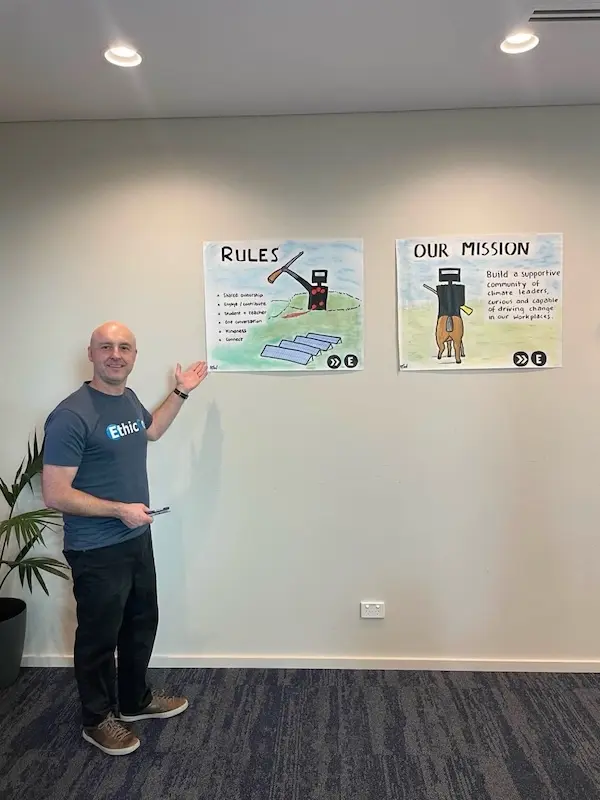
Learning together, the ultimate act of corporate rebellion?
I helped launch a new in-person meetup yesterday, in conjunction with the wonderful workforclimate (WFC). It was totally energising to meet so many brilliant leaders and to riff with the amazing Lucy Piper.
I’m excited to see what kind of community we can build (as we collectively explore the employee activism/advocacy response to climate emergency).
Someone asked me afterwards if I (or EthicCo) or WFC were receiving any payment for running the event. I was a little bit taken aback (although it’s a perfectly reasonable question).
Coming from an agile background, giving back to communities of practice is expected behaviour, as is taking time out the day to learn with others.
Doing the same old things with the same old people is no path forward in an emergent world.
We live in a ‘time is money’ world, where most workplaces are optimised around money. If an activity can’t be written off against a cost centre or is directly instrumental in delivering to a current priority, questions get asked, priority calls get made.
Some of my fondest memories of my 18 years at Macquarie were organic peer to peer learning. While working on a major departmental agile transformation, a group of us met weekly in a public breakout area for a lean coffee. People brought their immediate work challenges to their peers and experience (and empathy) were shared willingly. As a result, individuals and teams reaped the benefit of decades of lived experience at the corporate coal face, both in terms of wellbeing and performance. Yet there was no support from management. Senior people would walk past, roll their eyes and make ‘cheeky’ jibes about how lovey-dovey it was, how we should get back to the real work. Attendees would skip weeks because they were getting pressure from their boss to be ‘more productive with their time’ (although that probably just meant wasting away in some meeting). It’s easy to put this down to old-skool management practices or unenlightened individuals, but this is a systemic problem. If we don’t measure and prioritise learning, we can’t expect it to happen.
So the answer to the question I was asked is, ‘NO’, neither WFC nor EthicCo were doing this for financial reward. I give my time for free for several good reasons:
Time is precious and making a living isn’t easy (especially if you step off the corporate hamster wheel).
At EthicCo, we have made a commitment to both our own education and community building, these activities are valued and prioritised without question. We encourage everyone to carve out a little bit of space in their diaries each week to grow themselves and others.
Stay curious
Ewan